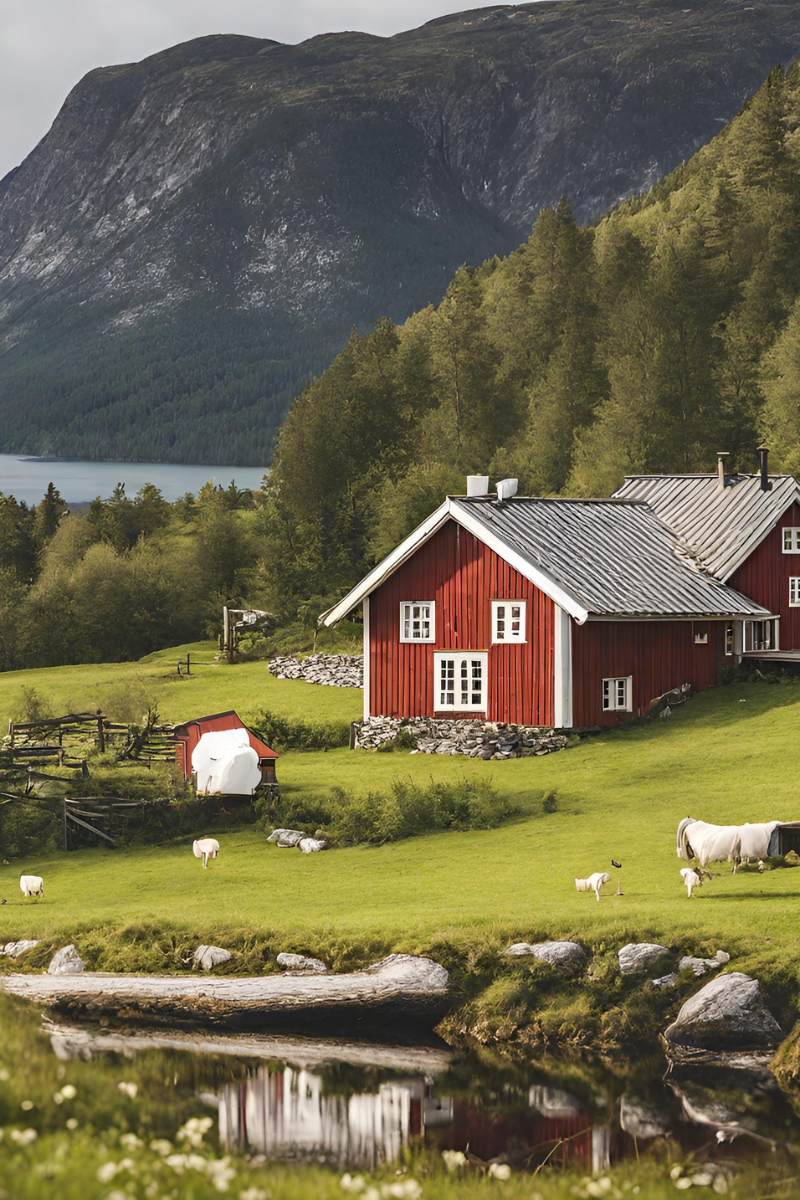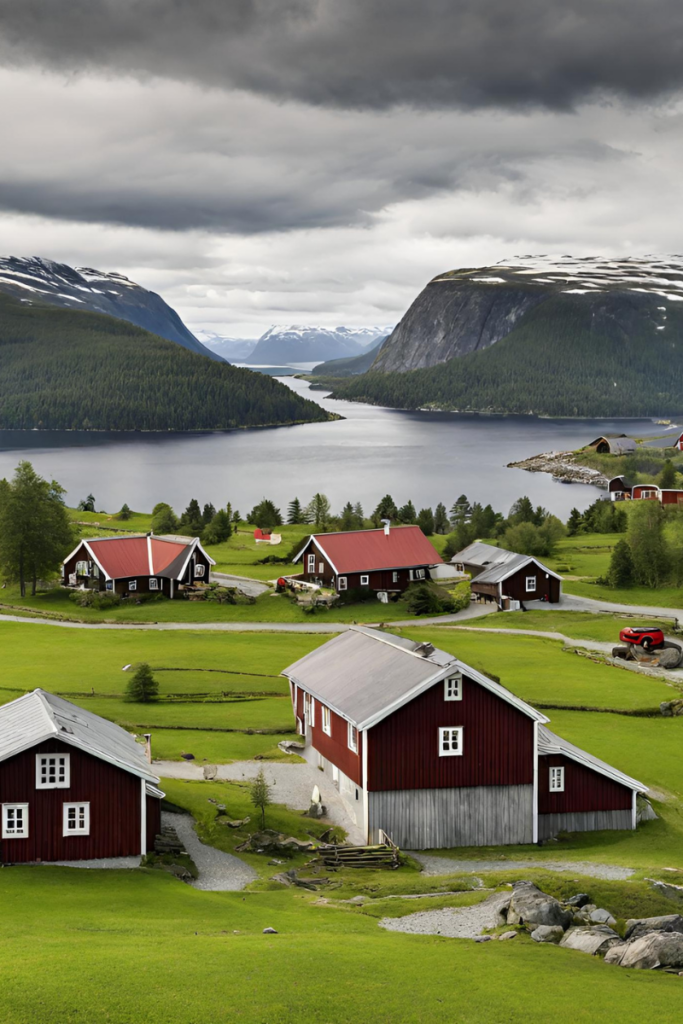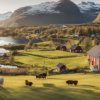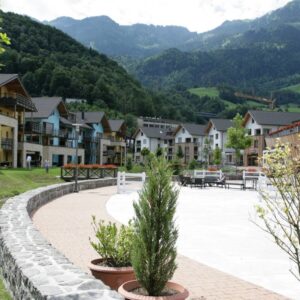
[ad_1]
Norway’s Sustainable Tourism Initiatives: Leading the Way in Eco-Friendly Travel
With its breathtaking landscapes, rich cultural heritage, and commitment to sustainability, Norway has established itself as a global leader in eco-friendly tourism. The Scandinavian country’s dedication to preserving its natural wonders while simultaneously providing tourists with memorable experiences has set a new standard for sustainable travel initiatives. In this article, we will explore Norway’s innovative approaches to sustainable tourism and how they have positioned the country as a trailblazer in the industry.
Norwegian Eco-Friendly Accommodations
One of the cornerstones of Norway’s sustainable tourism initiatives is its commitment to eco-friendly accommodations. From rustic lodges nestled in the mountains to modern urban hotels, the country has made significant strides in promoting environmentally conscious lodging options for travelers. For example, the iconic Juvet Landscape Hotel in Valldal, Norway, is a striking example of sustainable architecture that seamlessly integrates with its natural surroundings. The hotel’s design minimizes its impact on the environment, utilizing local materials and energy-efficient solutions to operate off-grid. Such establishments set an example for the entire hospitality industry, demonstrating that luxury and sustainability can go hand in hand.
Responsible Outdoor Activities
Norway’s commitment to sustainable tourism extends beyond accommodations to the activities and experiences it offers visitors. The country’s emphasis on responsible outdoor activities promotes the preservation of its natural landscapes while allowing tourists to appreciate the beauty of the environment. For instance, the Lofoten Islands, a popular destination for hiking and fishing, has implemented strict guidelines to minimize the environmental impact of outdoor recreation. These measures help protect fragile ecosystems and ensure that future generations can continue to enjoy Norway’s pristine wilderness.
Public Transportation and Eco-Friendly Travel

A key component of Norway’s sustainable tourism initiatives is its focus on public transportation and eco-friendly travel options. The country has invested heavily in developing efficient and sustainable transportation infrastructure, making it easy for tourists to explore its diverse attractions without relying on carbon-intensive modes of transportation. Norway’s extensive network of electric ferries and buses, as well as its promotion of cycling and walking paths, demonstrates its commitment to reducing the environmental footprint of travel. By prioritizing eco-friendly transportation, Norway not only minimizes the impact of tourism on its natural environment but also sets an example for other destinations seeking to adopt sustainable practices.
Collaboration with Indigenous Communities
Another hallmark of Norway’s sustainable tourism initiatives is its collaboration with indigenous communities to promote cultural preservation and economic empowerment. The Sami people, who have inhabited the Arctic regions of Norway for thousands of years, play a pivotal role in showcasing their traditions and way of life to tourists. Through partnerships with the Sami, Norway has created opportunities for travelers to learn about indigenous cultures and support local economies. Additionally, initiatives such as the World Indigenous Tourism Alliance have facilitated the exchange of knowledge and best practices, ensuring that indigenous communities are active participants in shaping the future of sustainable tourism in Norway.
Farmstays in Norway
- Nordigard Blessom (Lom, Oppland): Experience traditional Norwegian farm life at Nordigard Blessom. This historic farm offers cozy accommodations in restored buildings surrounded by stunning mountain scenery. Guests can participate in farm activities and enjoy homemade meals featuring local ingredients.
- Bjørneberget Gård (Tønsberg, Vestfold og Telemark): Situated near Tønsberg, Bjørneberget Gård offers a peaceful retreat on a working farm. Visitors can stay in charming cabins or rooms in the farmhouse, explore the surrounding forests and fields, and even join in farm chores if they wish.
- Solheim Accommodation (Geilo, Viken): Solheim is a family-run farmstay located in the beautiful mountain region of Geilo. Guests can stay in comfortable rooms or apartments in the farmhouse and enjoy activities such as horseback riding, hiking, and fishing in the nearby lakes.
Measurable Impact and Continued Progress
The success of Norway’s sustainable tourism initiatives is evidenced by measurable impacts on the environment and local communities. For instance, the country’s ambitious goal of reducing emissions from the tourism sector by 50% by 2030 has already shown promising results. Similarly, initiatives to protect biodiversity and conserve natural habitats have contributed to the preservation of Norway’s iconic landscapes. However, Norway recognizes that sustainability is an ongoing journey, and it continues to invest in research and innovation to further advance eco-friendly practices within the tourism industry.
Conclusion
Norway’s sustainable tourism initiatives stand as a testament to the country’s commitment to preserving its natural beauty and cultural heritage. Through eco-friendly accommodations, responsible outdoor activities, sustainable transportation, and collaboration with indigenous communities, Norway has set a high bar for sustainable travel practices. As the world increasingly prioritizes environmental conservation and responsible tourism, Norway’s example serves as an inspiration for destinations worldwide. By embracing the principles of sustainable tourism, Norway not only enhances the experiences of its visitors but also ensures the long-term preservation of its natural wonders for generations to come.
Reach out to us if you have a beautiful farm and want to offer your accomodation, experiences, spaces or farm products on Farmlike.
[ad_2]
 Docs
Docs
 Support
Support




















 Home
Home  Whishlist
Whishlist  Cart
Cart 

















